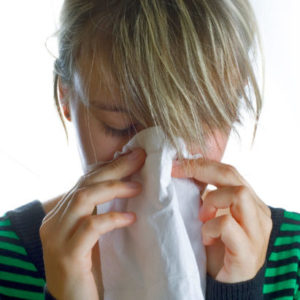Desensitization through serums and LDA

Does this sound familiar to you? Tiredness, brain fog, runny nose, aching sinuses, sore throat and itching eyes?
Spring has arrived and with its sunshine all the other symptoms above? Some attribute this malaise to a cold that lingers for weeks. But could it be something else? Could the symptoms simply indicate an allergy? Distinguishing between a cold and an allergy is difficult but allergy testing will give you the answer.
Allergy testing is the scratching of the skin surface with a small number of different allergens. An allergen is a substance that causes you to react in a negative way. If the response to the allergen is swelling, itching, redness or other physiological symptoms you are simply suffering from an allergy. You can be tested for over 30 types of allergies including food and environmental. For example, environmental allergies could be from grass, trees, ragweed, dandelion, candida, house dust, mold and mites.
Food allergies can also make a person feel unwell. What is a food allergy? According to Health Canada’s definition, “food allergies are sensitivities caused by a reaction of the body’s immune system to specific foods”. The symptoms can be as severe as the environmental allergies and are often misdiagnosed.
Fortunately, the same test as above can be done for food allergies.
Allergy Treatments
Serums
From the allergy test results, a personalized counteractive serum is prepared. Serums can be made for yeast, milk, soybeans, corn, eggs, oat grains, apple, orange, cocoa, coffee, wheat, rice and other foods. Treatment can be given to adults and children.
Both forms of allergy testing and serums are available at the Urban Integrative IV and Detox Clinic.
Allergy serums are preferable to allergy medications as the serum treats the underlying problem by normalizing the immune system.
If allergies are interfering with your daily living and well being then you definitely need to avail yourself of this treatment.

“Allergy” shots have been used for many years in the treatment of regular inhalant allergies. They have stood the test of time and have proven very useful in the management of inhalant allergies (to dust, molds, animal dander and pollens).
Their efficacy is well established but there are drawbacks with this procedure. These include the fact that the shots have to be given weekly for a long time; they can cause nasty local reactions and occasionally have led to life-threatening anaphylaxis and even death. Also, they are not effective in managing food and chemical sensitivities and therefore their use is restricted to only a limited number of medical conditions such as allergic rhinitis, conjunctivitis and bronchial asthma.
However, over the last 40 years, a new form of immunotherapy has evolved. This procedure is not only effective for the above standard allergic conditions but also for food and chemical sensitivities. Also, much lower concentrations of allergy antigens are used, and the frequency of these shots is only once every 2 to 3 months initially. In fact for simple dust and hay fever problems, only 2 shots a year are required to desensitize the patient.
This technique has also opened up a new way of treating chronic conditions which are known to be food “allergy” driven, such as irritable bowel syndrome, arthritis, migraine, hives and attention deficit disorder/hyperkinesis in children. Also, bacterial and fungal allergies can be effectively treated with this form of low dose immunotherapy. These can be seen in patients with rheumatoid arthritis, ankylosing spondylitis, ulcerative colitis and Crohn’s disease. Even certain forms of epilepsy and autoimmune disease can be managed with this technique.
Sometimes, allergies can be hard to detect. When fighting with one or more of these conditions, the chances are that allergies are involved: asthma, sneezing, itching, chronic colds, phlegm, post-nasal drips, eczema, psoriasis, hair loss, ulcerative colitis, acidity, constipation, IBS, digestive disorders, sugar cravings, bloating, ear infections, weight gain, anxiety, irritation, mood swings and sluggishness.
To help you identify your allergies, we will:
- Screen for:
- Food allergies and sensitivities
- Chemical sensitivities and allergies
- Environmental allergies and sensitivities
- Mold allergies and sensitivities
- Parasites
- Once we find out the root cause of your condition, a qualified practitioner will discuss your treatment options and guide through the process of deciding on the suitable treatment for your allergies and your lifestyle.
The treatments available are well-researched and proven effective. These are Desensitization and LDA.
Desensitization
Desensitization is the preparation of a personalized serum after your sensitivity and or an allergy has been found and assessed for their strength. The serums are made from minute doses of the allergen to desensitize you. You take the prepared serum home and self-inject this neutralizing dose weekly. Oral serums are available for children.
Very little preparation is required. Testing to find the correct dose of antigen can take from 4–5 hours in the office. The serum, which lasts for three months, is self-administered weekly. Retesting must be done every year.
The testing cost $22 per antigen. The serum costs $115 for one serum.
Low Dose Immunotherapy (LDA)
This technique uses an enzyme called B-glucuronidase, which is an immune modulating chemical substance added to the antigen mix at the time of administration of the treatment.
B-glucuronidase is present normally in the white blood cells of the body and during inflammation or allergy reactions. This enzyme is released by white blood cells as part of the normal immune response and actually increases the immunity to the antigen being attacked.
LDA exploits this activity to modify a specific hypersensitivity. This is achieved by the presence of a very low precise dose of a specific sugar and the presence of low or ultra-low precise doses of specific antigens.
In fact, LDA uses a natural pathway of immune modulation at a strength less than what usually occurs in nature.
Enzyme potentiated desensitization has been researched, defined and pioneered by Dr Len McEwan, a medical doctor and immunologist in England.
Injections are usually given every 3 months at our Centre. After six or more treatments, they can be administered less often. Cost: approximately $300 per injection depending on the number of allergens.
We look forward to helping you!!